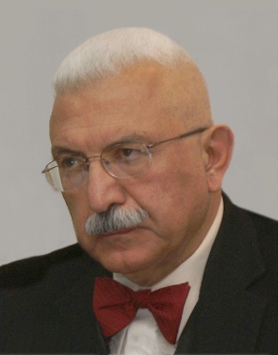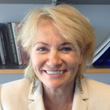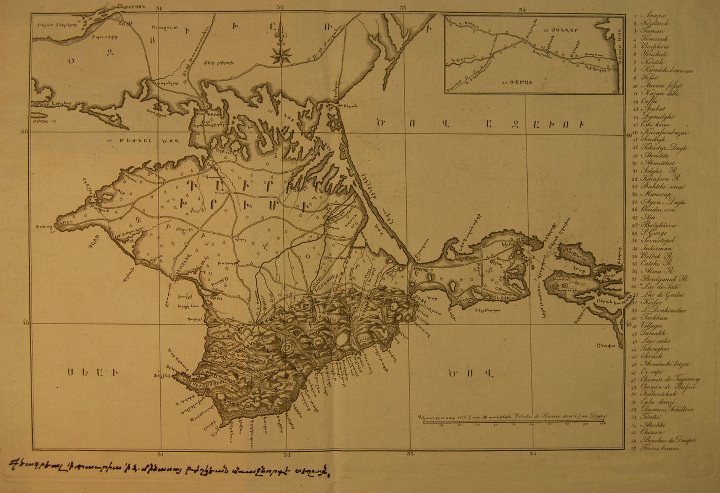A Russian-American-Syrian Triangle: The Syrian Chemical Weapons and American-Russian Relations  By Professor Andrei Kreutz,
By Professor Andrei Kreutz,
EGF Adviser on Trans-Atlantic Security
During the last few weeks, the Syrian-American-Russian triangle directly or indirectly involving all Syria’s neighbors and a number of other nations, has become one of the major focuses of the political commentaries. The Russian initiative to help disarm Syria from its chemical weapons and Putin’s article which was published in the New York Times on September 11, 2013 apparently contributed decisively to prevent a new American military intervention in the Middle East, and brought Russia and its leader world-wide public attention, unknown since the collapse of the Soviet Union. According to the well-known American political analyst George Friedman, for the first time since the early 1990s, the Russian Foreign Minister Lavrov was able to sit with US State Secretary Kerry as an equal.
READ MORE
- Friday, 17 January 2014, 07:55
On the CSTO priorities in ensuring stability in Central Asia in terms of the withdrawal of coalition forces from Afghanistan  By Major-General, Doctor of Political Science, Hayk Kotanjian By Major-General, Doctor of Political Science, Hayk Kotanjian
Guest contributor to EGF
On October 10 2013, within the framework of the Kyrgyz Republic’s chairmanship in the CSTO, an academic-practical conference “Afghanistan 2014: Prospects of the situation in the Islamic Republic of Afghanistan, challenges and threats to security in Central Asia in the context of the withdrawal of main contingents of the International security assistance force" took place in Bishkek. Experts from 27 countries, as well as from the CSTO, NATO, the UN, the OSCE, the EU, the SCO, the ICRC and other international organizations attended the conference. READ MORE
- Saturday, 19 October 2013, 06:58
Armenia's choice of the Eurasian Union: A stunning end to its European integration?  George Vlad Niculescu,
George Vlad Niculescu,
Head of Research, The European Geopolitical Forum
The announcement at the beginning of September 2013, in Moscow, by President Serzh Sargsyan of Armenia's decision to join the Russia-led Eurasian Customs Union (ECU) apparently took many by surprise. Firstly, because in July 2013 Armenia concluded a lengthy four years negotiation on essential agreements, meant to upgrade its ties with the European Union (EU), which would be incompatible with joining the ECU. Secondly, because until recently (i.e. the run-up to the Vilnius Eastern Partnership summit to be held this fall) enlargement didn't seem a top priority for the ECU, the focus being more on making the customs union mechanisms effectively work for the existing membership. READ MORE
- Friday, 27 September 2013, 10:54
Russian Problem: Russia's Place in the World - an Attempt at Historical and Geopolitical Analysis  by Prof. Andrej Kreutz,
by Prof. Andrej Kreutz,
EGF adviser for Trans-Atlantic security
A Long Western Debate and its Political Consequences
Although Russia has been part of the European system since the Westphalian Treaty of 1648, and after its victory in the Northern War with Sweden and the Nystad Treaty in 1721 started to be seen as of he major powers on the continent, both its internal nature and its role in international politics have often suffered Western doubts and uncertainties. READ MORE
- Thursday, 19 September 2013, 12:42
Guest contribution: Gazprom is still relevant to the EU market, but for how long?
 by Professor Natasha Udensiva by Professor Natasha Udensiva
The U.S. shale gas revolution is spreading: more and more countries are talking about developing their own shale gas resources. How is this relevant for Gazprom? It is relevant because, with more countries developing their natural gas resources, Gazprom’s once-powerful monopoly may soon lose its hold on the European market. So far, the company’s strategy has relied on the exclusiveness of its vast resources. But shale development is undermining this very quickly. Soon, access to technology will trump resource access. Then, Gazprom’s only chance of reasserting its presence will be to lower its prices. READ MORE
Regional Integration as a Conflict Management Strategy in the Balkans and South Caucasus
 By Anna Ohanyan, By Anna Ohanyan,
EGF Affiliated Expert on South Caucasus region building
There is much enthusiasm among researchers and policymakers alike concerning the pacifying effects of trade and broader interdependence among states. The European Union is an often cited example of greater regional integration as a way to enhance peace and security among neighboring states. This comparative regional study draws from the cases of the Balkans and South Caucasus in order (1) to offer a descriptive account of patterns and processes of regionalism in politically divided conflict areas, and (2) to examine the extent to which such regional engagement can positively affect ongoing conflict management efforts in a given conflict region. The study advocates promoting regional structures as a new and potentially effective approach to peace-building and security enhancement, toward managing the many 'frozen conflicts' both in the Balkans as well as in the South Caucasus. READ MORE
The evolution of European and Euro-Atlantic policy making in the wider Black sea: EU and NATO attempts at strenghening regionalism in an area of strategic interest 
Debates about the geopolitical, geo-economic and strategic significance of the wider-Black Sea (WBS) region have become fashionable amongst Western policy makers and the international scholarly community since the end of the Cold War. While the Black Sea represented a “front line” in the stand-off between rival superpower blocks during an age which now seems to have slipped into the bygone days of our youth, the major geopolitical realignments which have taken place in Eurasia during the last two decades have evidently led to our “re-discovery” of one of the world’s most historically significant geostrategic playing fields. To read more click here.
- Wednesday, 1 August 2012, 20:27
|
|